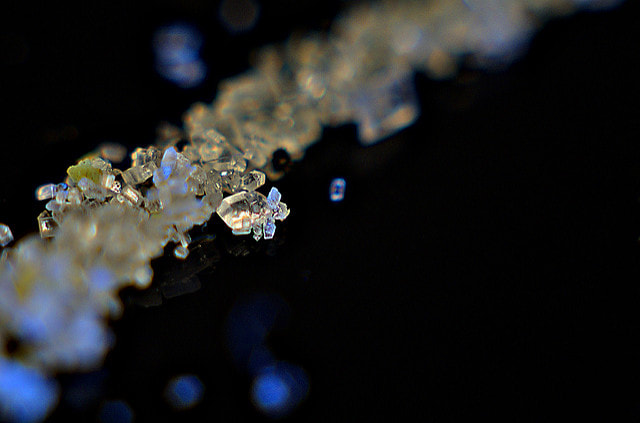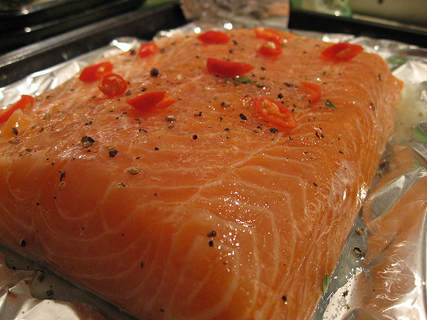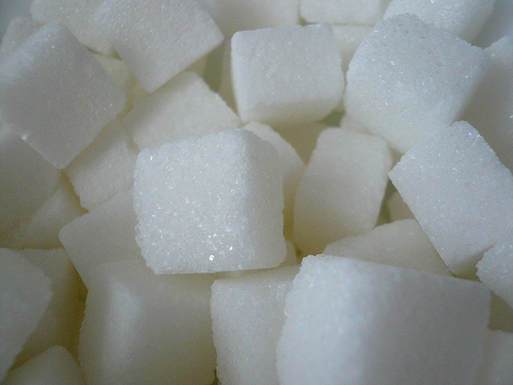Now, more than ever, we have an understanding about sugar and its effects on our health. For example, check out this Ted talk on how sugar affects the brain. We understand how too much sugar causes addictive patterns in our brain because we receive a dopamine release (a feel good neurotransmitter) after consuming it, and when we consume high amounts of sugar regularly, we start to lose our tolerance for it, causing us to crave more to get the same effect. In this way, sugar, in high amounts, acts like a drug to our system.
This is important to understand because sugar is added to so many foods. In fact, it is hidden in foods you wouldn’t necessarily think would contain sugar. Cakes, cookies, and treats are obviously sugary foods, but did you know sugar is also added to things we might eat on a daily basis, and even think of as healthy? Sugar is found in breads, crackers, salad dressings, condiments like ketchup, pasta, flavored waters and juices, and yogurts. Reading labels and identifying things like cane sugar, raw sugar, honey, fructose, sucrose, dextrose, starch, lactose, corn syrup and high fructose corn syrup, agave nectar, all of which are forms of sugar, can help empower us to make different choices that are healthier. We naturally get sugars from fruits and vegetables. Sugar is another term to describe a simple carbohydrate, or simple sugar. Other carbohydrates, complex carbohydrates, also contain sugar but also have fiber and other nutrients which makes a huge difference in how we process and digest that food. Essentially simple sugars immediately require us to produce insulin in order to shuttle the glucose into our cells for energy. Complex carbohydrates, such as sweet potatoes, squashes and other starchy vegetables, contain fiber and have a longer digestive process, essentially creating a more gradual increase in energy. Think about a sugar spike of energy after eating a sweet treat, followed by a crash, versus a more sustained and gradual energy. Now, here is something interesting about how sugar is stored in the body. Sugar is changed to glucose and brought to our cells to use immediately for energy. Any cell in our body can use glucose for energy. However, our cells have a maximum amount they can use at a time, so any leftover glucose that cannot be used gets converted to glycogen and stored in our muscle tissue and the liver. The liver and our muscle tissue also have a maximum amount of glycogen that can be stored, SO, any excess glycogen beyond that can be used immediately or stored gets converted into triglycerides, which are fat molecules, and stored in adipose tissue, or fatty tissues in the body for longer term storage. In other words, if your diet consists of high and consistent amounts of sugar (including all those hidden sources) then likely you are consuming more than can be used or stored as glycogen and thus that excess fuel gets stored as fat. This is exactly why “diet” and “low-fat” products do not work for weight loss goals. In fact, they often create more stress on the body in terms of processing high amounts of sugars and preservatives and can lead to unwanted weight gain! In addition to weight loss, less sugar consumption is healthier for us because we are not stressing our endocrine system with a high need for insulin. Balancing insulin in the blood has direct effect on the brain where we remain sensitive to sugar and thus do not fall into addictive patterns as mentioned above. Furthermore, high triglyceride count in the blood is strongly linked to heart disease, diabetes, and stroke. Limiting sugars to their natural sources like whole fruits and vegetables and avoiding added sugars and excessive refined sugar consumption can not only help you achieve healthy weight goals but also decrease your risk for serious conditions like metabolic syndrome and heart disease.
1 Comment
The unfortunate consequence of fat phobia is that we have deprived our bodies of an essential nutrient that is critical for brain and hormone health. This malnourishment has contributed to a large collection of illnesses and compromised brain function. There is a lot to get over, in terms of mindset, around fat, but I encourage you to experiment and begin incorporating more healthy fats into your diet. Look forward to the following positive results from eating more healthy fats.
Ok, so ready to incorporate more fat into your diet? Get started by focusing on these healthy and optimal sources:
In addition to these top seven healthy fats, consider enjoying whole nuts and seeds as well. Eating whole nuts and seeds, that have been cleaned and soaked are a good source of fat and protein, plus fiber and other nutrients (like selenium in brazil nuts). Many people cannot tolerate nuts and seeds, which is why they didn’t make the top seven list here, but if you can, enjoy adding nuts into your diet as well. I recommend soaking them overnight so they are easier to digest and rotating nuts so you aren’t eating the same ones every day. If you’ve been following a low-fat or fat-free diet, then I hope you will consider making some changes. Fat is such an important and vital nutrient for our overall health and can make a drastic difference towards feeling great when we start incorporating more into our diets. And I get that this is a big topic to unravel. If you want more science, check out this article that breaks down the chemical structure of fats. Breaking the sugar habit is hard for everyone. And more than willpower, it is our biology that is driving the boat. Making successful changes in diet requires compassion and gentleness. Forcing ourselves to do anything, to restrict our “treats” is a deprivation model and we will only rebel against it in the end.
The best place to start is by adding in more nutrient rich foods, such as organic fruits and vegetables, high quality organic protein sources with every meal, adequate amounts of healthy fats, and complex carbohydrates. Fill your plate with healthy choices and focus on bringing in more nutrients that will lead you towards optimal health, weight, and mood, rather than looking at restricting anything. And here are 10 Tips for taking the next steps to finally break that habit and begin achieving your personal health and wellness goals! 10 Steps for Dealing with Sugar Addiction
|
Archives
July 2018
Categories
All
|




 RSS Feed
RSS Feed